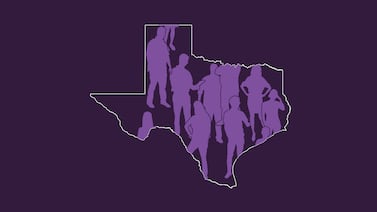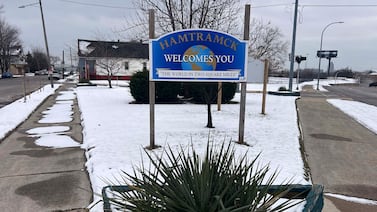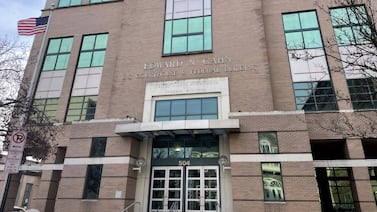Votebeat is a nonprofit news organization reporting on voting access and election administration across the U.S. Sign up for Votebeat Arizona’s free newsletter here.
Update, Oct. 8: A Pinal County Superior Court judge ruled Friday that Pinal County is violating state law by not following the Elections Procedures Manual, but the court will not force the county to follow the rule during the November election. The Secretary of State’s Office appealed the ruling Monday, and the Pinal County Board of Supervisors voted Monday to move forward with an appeal soon.
A Pinal County judge is set to decide a case Friday that could affect the number of ballots rejected in the county during this year’s presidential election.
The judge heard arguments Thursday in a dispute between Pinal officials and Arizona Secretary of State Adrian Fontes’ office over a new rule he added to the state’s Election Procedures Manual involving how the county should respond when a voter shows up to vote at the wrong location.
Fontes’ office sued Pinal County Recorder Dana Lewis and the county supervisors after learning that the county doesn’t plan to follow the rule.
At an emergency hearing in Pinal County Superior Court, the lawyer representing Fontes’ office, Assistant Attorney General Kara Karlson, told the judge that the rule was meant to protect voters from having their ballots rejected in Pinal County for a reason that couldn’t be cause for rejection elsewhere in the state.
The dispute arises out of the way Pinal County runs its elections.
Most Arizona counties have switched to a vote center model, in which voters can cast their ballots anywhere in their county. Pinal County is one of a few counties that still use a precinct-based model, where voters are assigned a specific voting location near where they live.
In Pinal County, if a voter tries to vote at a polling place in the wrong precinct — where their name is not on the rolls — the poll worker will tell them so, but allow the voter to cast a provisional ballot at that location if the voter believes there’s been a mistake. If a voter ends up having voted in the wrong place, that provisional ballot is rejected.
Hundreds of voters have their ballots rejected in the county for this reason in each election, according to county data — including 274 in November 2020 and 235 in November 2022.
Fontes’ new rule is aimed at providing all voters access to the correct ballot for their precinct. It requires counties like Pinal that use the precinct system to set up their accessible voting devices — large computers that are mostly used by voters with disabilities or language barriers — to contain every ballot style, for every precinct. If a voter shows up to the wrong location, the poll workers must permit the voter to use that device to cast the correct ballot style for their precinct, rather than a provisional ballot.
The Pinal County Recorder’s Office argues that by requiring accessible machines to be set up this way, Fontes’ office is effectively forcing counties to adopt a vote center model, whereas state law allows counties to choose between the vote center and precinct models.
Pinal County has been reluctant to adopt a vote center model for a number of reasons, including concerns about connecting voter rolls to the internet.
It appears other counties besides Pinal are going along with the new rule. That’s why Karlson is arguing that if the court doesn’t force Pinal County to comply, its voters will be treated differently than those in the rest of the state.
“If we are in an election contest and there are votes that were counted in all 14 other counties, but they weren’t counted in Pinal County, even though they could have been or should have been, that is going to cause major, major problems in Arizona elections,” Karlson said. “And how can we avoid that? The voter is the one that is going to pay the penalty here.”
The judge said she would rule sometime Friday, but maybe not until late.
Jen Fifield is a reporter for Votebeat based in Arizona. Contact Jen at jfifield@votebeat.org .



